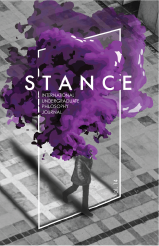Why the Readiness Potential Does Not Disprove Free Will
DOI:
https://doi.org/10.33043/S.14.1.125-133Abstract
Neuroscientist Benjamin Libet has conducted a series of experiments that reveal the existence of certain neural processes in the brain of human subjects, initiating an action prior to the human subject’s intention to act, thus seemingly threatening our idea of free will. The purpose of this paper is to show how these processes do not disprove any idea of free will one might have as one would, if accepting such a thesis, be committing two distinct mereological fallacies and ultimately, would treat the human subject as inhabiting some of its parts as opposed to being the sum of its parts.
Downloads

Downloads
Published
How to Cite
Issue
Section
License
Copyright (c) 2021 Even Totland

This work is licensed under a Creative Commons Attribution-NonCommercial-NoDerivatives 4.0 International License.
Stance requires right of first publication. All other rights reside with the author. Authors are free to reuse their own articles in other publications they write or edit, and no further permission is required. The journal only requires acknowledgement of the original publication in Stance.
All articles are licensed with a Creative Commons Attribution Noncommercial No-Derivatives 4.0 International license.

